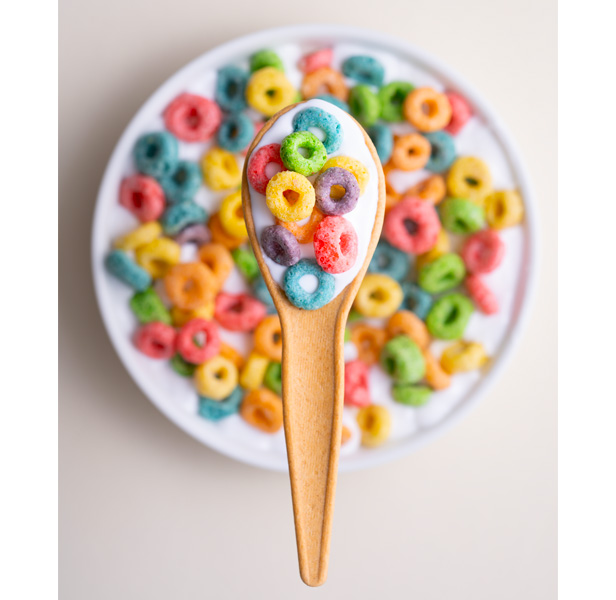Sustainability August 10, 2022
Could Edible Utensils Reduce Plastic Waste?
A new company is on a mission to replace single-use items with ones you can eat.
As states, municipalities and private firms continue to ban single-use plastic, consumers and the companies that serve them are now compelled to find sustainable alternatives. To that end, eco-conscious companies are getting creative in their quest to find solutions.
One such company is Incredible Eats, which is committed to producing spoons and sporks that are entirely edible at the end of a meal; they’re made of ingredients like wheat, oats, corn, brown rice and chickpeas. Since they’re consumable, that makes them a better choice for the environment than biodegradable and recyclable products, according to the company. Biodegradables can take a long time to decompose, and recyclables tend to end up in landfills.

Incredible Eats’ edible spoons and sporks come in flavors like chocolate, which pairs well with ice cream.
“A common misconception is that we’re in the edible cutlery business – yes and no,” says Jack Kneubuhl, director of sales at Incredible Eats, which has plans to expand their product line. “More so, we’re in the business of reducing plastic.”
Sound drastic? Perhaps. But data shows that waste management across the board needs significant improvement. According to the Organization for Economic Co-operation and Development (OECD), global plastic waste is projected to triple by 2060, with about half in landfills and less than a fifth recycled. The OECD also estimates that almost two-thirds of that waste will come from single-use items like plastic utensils. By 2050, says the World Economic Forum, the plastic in the world’s oceans could outweigh the total number of fish.
Incredible Eats’ spoons and sporks come in various sizes and flavors – including vanilla, chocolate, black pepper, oregano chili and plain – to pair with both sweet and salty foods. “As you’re using it, you’re not really going to be able to taste a difference,” Kneubuhl says. “But once you bite into it, while it’s subtle, but you can definitely tell what flavor it is.”

The edible utensils are made of ingredients that include wheat, oats, corn, brown rice and chickpeas.
Kneubuhl and his team tried about 80 different recipes, in an effort to balance functionality, taste, texture and nutrition. For example, the spoons need to be sturdy enough to scoop through ice cream without snapping while soft enough to bite. But with a shelf time of about six months and the ability for mass production, Kneubuhl says their products have significant eco-conscious potential.
“We can make 50,000 units a day right now, and we specifically designed the machinery and the process to be scalable,” Kneubuhl says. While the products are currently available at retail, Incredible Eats’ mission is to move beyond just home use and soon enter the B2B space to replace plastic utensils for large-scale settings like catered events, concerts and food courts. And that creates opportunity for the promotional products industry as well.
“Soon, I see us at a point where distributors can order 100 spoons and we’ll put your client’s logo on the outside wrapper,” he says.
While it’s impossible to avoid the use of plastic and carbon for a company that requires packaging and shipping, Kneubuhl says Incredible Eats offsets 200% of the carbon and plastic they use. “We hope that we could start a trend for other companies to be not just carbon-neutral or carbon-negative, but to be carbon-positive,” he says. “If you have the means to do it, you should really go above and beyond.”

Promo for the Planet is your destination for the latest news, biggest trends and best ideas to help build a more sustainable and socially-responsible industry.
